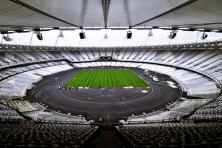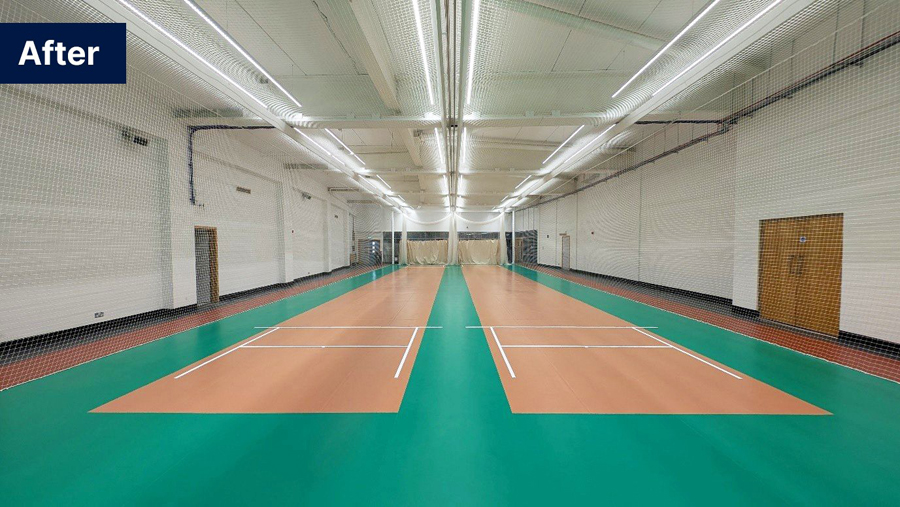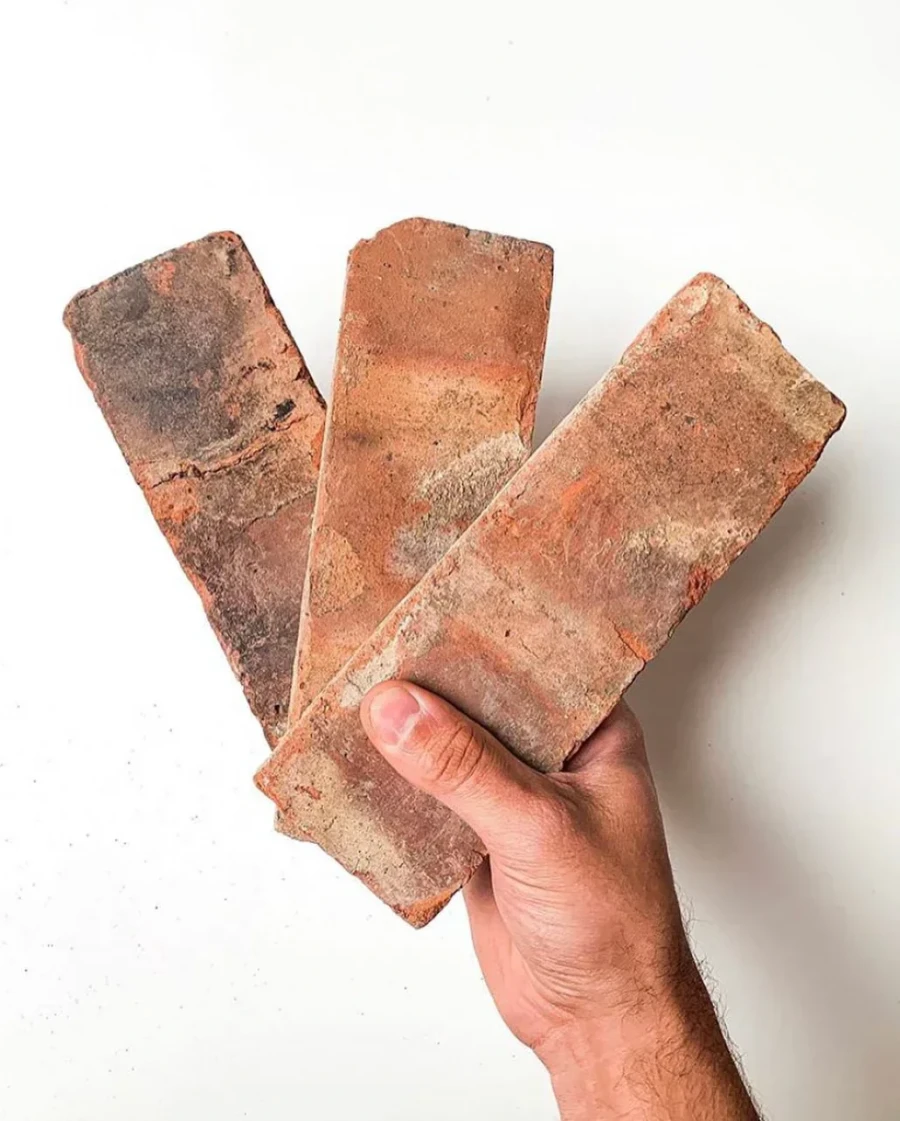The London 2012 Olympic Cauldron has been moved into its resting place alongside the Opening Ceremony Bell in the London 2012 Olympic Stadium ready for the athletics competition to begin on August 3.
The Olympic Flame, which has been seen by nearly 15 million people on its 70 day journey around the UK, and by a worldwide TV audience of around one billion people in the Opening Ceremony, was taken from the Cauldron and placed in a special miners lantern overnight before work began to move Thomas Heatherwick’s spectacular structure from its ceremony position in the centre of the field of play.
The Cauldron, made up of 204 steel pipes and individually designed copper petals inscribed with the competing nation’s names, was then relocated at the south end of the Olympic Stadium within eyesight of competing athletes, as an echo of the cauldron location at Wembley for the London 1948 Games.
During an ongoing 80 hour transition of the Stadium from Danny Boyle’s spectacular set for the Opening Ceremony to an Olympic sporting area for athletes from around the world, the Cauldron was relit.
In a small ceremony the Olympic Flame was transferred from the miners lamp to the London 2012 Olympic Torchbearer Austin Playfoot who then lit the Olympic Cauldron using a London 2012 Olympic Torch.
Austin was invited by LOCOG following his role as a 1948 London Olympic Games Torchbearer when he carried the Olympic Flame from the Horse & Groom pub in Merrow to the Municipal Offices in Guildford on July 29, 1948. He was then nominated as a London 2012 Olympic Torchbearer by Guildford & Godalmining Athletic Club where he has spent 40 years as an athletics track judge, and on the 20 July 2012 he lit the Cauldron at the Torch Relay Evening Celebration event in Stoke Park, Guildford.
At the end of the Games, each team will take their petal home and the London 2012 Cauldron will cease to exist – it is a representation of the extraordinary transitory community that is the coming together of the world’s community at the London Olympic Games.
Austin Playfoot, London 1948 and London 2012 Olympic Torchbeaer said: “It was an honour to be asked to perform this important task of relighting the Cauldron in its resting position.
“When I ran with the Olympic Flame in Guildford I never thought I would get this close to the Cauldron, it brought me to tears when it lit up. It will be an incredible inspiration to the competing athletes here at the heart of the Olympic Park in the Stadium.”
Thomas Heatherwick, the designer of the London 2012 Olympic Cauldron, said: ‘There is the precedent of the 1948 Games of the cauldron set within the stadium, to one side with the spectators, and with the technology we now have that didn't exist in 1948 it can be shared with everyone in the Olympic Park with screens.
“We felt that sharing it with the screens reinforced the intimacy within it, if it had been a huge beacon lifted up in the air it would have had to be bigger, and would have somehow not met the brief that we discussed with Danny Boyle of making something that was rooted in where the people are.”




















